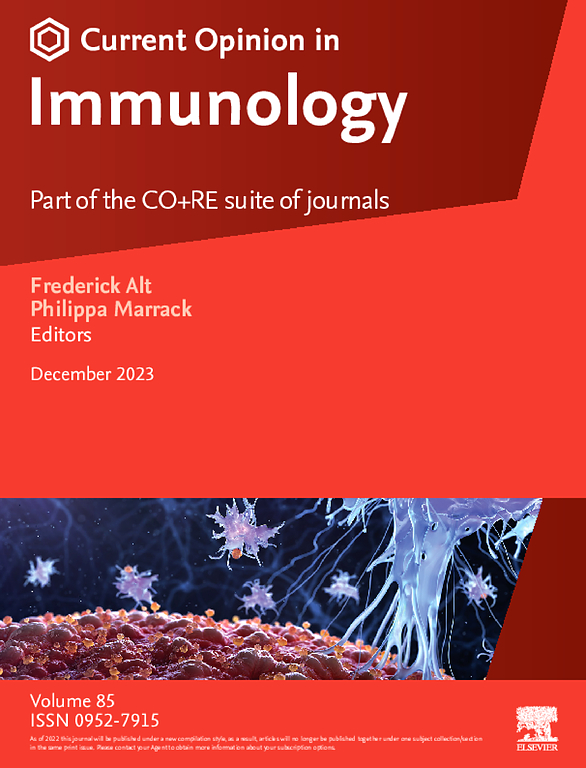Tuberculosis as an unconventional interferonopathy
IF 6.6
2区 医学
Q1 IMMUNOLOGY
引用次数: 0
Abstract
Tuberculosis is caused by Mycobacterium tuberculosis, a bacterium that accounts for more human mortality than any other. Evidence is accumulating for the view that tuberculosis is an interferonopathy — a disease driven by type I interferons. However, how type I interferons exacerbate tuberculosis remains poorly understood. As an infection, tuberculosis is distinct from conventional interferonopathies, which are autoinflammatory diseases. Here I consider the hypothesis that type I interferons promote bacterial replication by impairing key antibacterial immune responses, including those orchestrated by interleukin-1 and interferon γ. Paradoxically, during tuberculosis, the underlying state of impaired antibacterial immunity co-exists with overt (but ineffective) inflammation. Conceiving of tuberculosis as an unconventional interferonopathy may suggest fruitful avenues for therapeutic intervention.
肺结核是一种非常规的干扰素病。
结核病是由结核分枝杆菌引起的,这种细菌是造成人类死亡率最高的细菌。越来越多的证据表明,结核病是一种干扰素病——一种由I型干扰素驱动的疾病。然而,I型干扰素如何加剧结核病仍然知之甚少。作为一种感染,结核病不同于传统的干扰素病,后者是一种自身炎症性疾病。在这里,我考虑了一种假设,即I型干扰素通过损害关键的抗菌免疫反应(包括由白细胞介素-1和干扰素γ协调的免疫反应)来促进细菌复制。矛盾的是,在结核病期间,潜在的抗菌免疫受损状态与明显的(但无效的)炎症共存。将结核病视为一种非常规的干扰素病可能为治疗干预提供富有成效的途径。
本文章由计算机程序翻译,如有差异,请以英文原文为准。
求助全文
约1分钟内获得全文
求助全文
来源期刊
CiteScore
13.30
自引率
1.40%
发文量
94
审稿时长
67 days
期刊介绍:
Current Opinion in Immunology aims to stimulate scientifically grounded, interdisciplinary, multi-scale debate and exchange of ideas. It contains polished, concise and timely reviews and opinions, with particular emphasis on those articles published in the past two years. In addition to describing recent trends, the authors are encouraged to give their subjective opinion of the topics discussed.
In Current Opinion in Immunology we help the reader by providing in a systematic manner: 1. The views of experts on current advances in their field in a clear and readable form. 2. Evaluations of the most interesting papers, annotated by experts, from the great wealth of original publications.
Current Opinion in Immunology will serve as an invaluable source of information for researchers, lecturers, teachers, professionals, policy makers and students.
Current Opinion in Immunology builds on Elsevier''s reputation for excellence in scientific publishing and long-standing commitment to communicating reproducible biomedical research targeted at improving human health. It is a companion to the new Gold Open Access journal Current Research in Immunology and is part of the Current Opinion and Research(CO+RE) suite of journals. All CO+RE journals leverage the Current Opinion legacy-of editorial excellence, high-impact, and global reach-to ensure they are a widely read resource that is integral to scientists'' workflow.

 求助内容:
求助内容: 应助结果提醒方式:
应助结果提醒方式:


